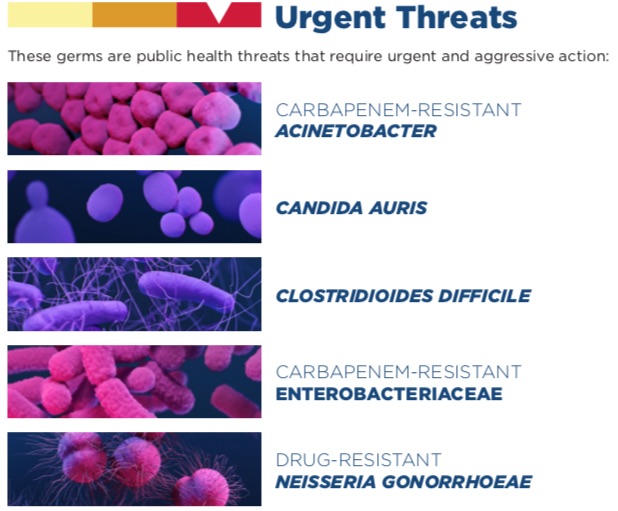March 6, 2020 by John Fernandez
Antibiotic Awareness Week 2019: Three Ways South Floridians Can Be Antibiotic-Aware

Antibiotics are unlike other drugs. Rather than working on people, they target the microbes that make people sick. Unfortunately, the more we expose microbes to antibiotics, the more we pressure them to become resistant to antibiotics. We have known about the threat of antibiotic resistance since penicillin was introduced in the 1940s; it has now progressed to the point that antibiotic resistance has become a major public health threat worldwide.
The problem of drug-resistant microbes – sometimes called “super bugs” in the media – has been exacerbated by the lack of new antibiotics coming to the market. The last new class of antibiotics used in clinical practice today was discovered in 1984. The last new class of antibiotics targeting Gram negative bacteria (e.g., E. coli, the leading cause of urinary tract infections) was fluoroquinolones, discovered nearly 60 years ago.
Just this month, the U.S. Centers for Disease Control and Prevention (CDC) released its 2019 report, Antibiotic Resistance Threats in the United States, which provides a wealth of information and classifies microbes by threat level – Urgent, Serious, and Concerning. Some of the most important microbes on this list are Clostridium difficile (aka C. diff) and drug-resistant Neisseria gonorrhoeae (yes, the one that causes the STD).

U.S. Antibiotic Awareness Week, November 18-24, underscores the need to raise awareness about antibiotic resistance. Baptist Health South Florida, which has adopted stringent antibiotic safety measures across all of its facilities, has three tips for how you can use antibiotics safely, without harming yourself or minimizing their future ability to work as intended.
Three Keys to Safe Antibiotic Use:
- Know that antibiotics are not always the answer, so let your doctor make the call.
Many times when we are sick we just want to feel better. Sometimes that leads us to believe antibiotics are the answer. However, antibiotics do not work against all of the microbes that can make us sick. For example if we have an infection caused by a virus, an antibiotic is not going to help us fight it since antibiotics work against bacteria, not viruses. In fact, an antibiotic can cause side effects (like diarrhea) and cost money at the pharmacy, so not only will it not help for a virus, it has the potential to cause harm.
When wondering if you need antibiotics, do not demand antibiotics. Let your licensed medical professional diagnose your problem and then use that diagnosis to decide whether antibiotics might help you. Sometimes we need antibiotics, sometimes we simply need to manage our symptoms and employ supportive care.
2. Take antibiotics as prescribed when you do need them.
When we really do need to take antibiotics, we want them to work. For the best treatment outcome, patients should take their antibiotics as prescribed. If there are questions about a prescription, patients should talk to their provider or other licensed healthcare professional to clarify things. Being antibiotic-aware is not just about knowing when to use antibiotics, it’s also about using them wisely when we do need them.
3. Don’t share or stockpile leftover antibiotics.
It is human nature to worry about the “what if?” scenarios, which can cause us to hold on to a few extra pills from an unfinished antibiotic course, just in case. There are two problems with this. First, if someone is sick and they are not diagnosed correctly, we could end up using the wrong tool for the job. That can mean using potentially toxic antibiotics when there is no potential benefit for the sick person. Second, if antibiotics are expired, they can be less potent, which means they may not do a good job treating the infection even if it is the right drug.
Baptist Health South Florida takes infection control and prevention seriously, and is committed to the safe and appropriate use of antibiotics (i.e, antimicrobial stewardship). In all of its facilities, physicians, pharmacists, nurses, and others remain focused on optimizing antibiotic use. They use protocols to help ensure patients get the right antibiotics, and they use local data to improve practices. Baptist Health’s staff is committed to its patients’ wellbeing and to helping them achieve the best possible outcomes by being antibiotic-aware.
Timothy P. Gauthier, Pharm.D., BCPS-AQ ID, is Manager of the Antimicrobial Stewardship Clinical Program for Baptist Health South Florida.
top stories












There are no comments